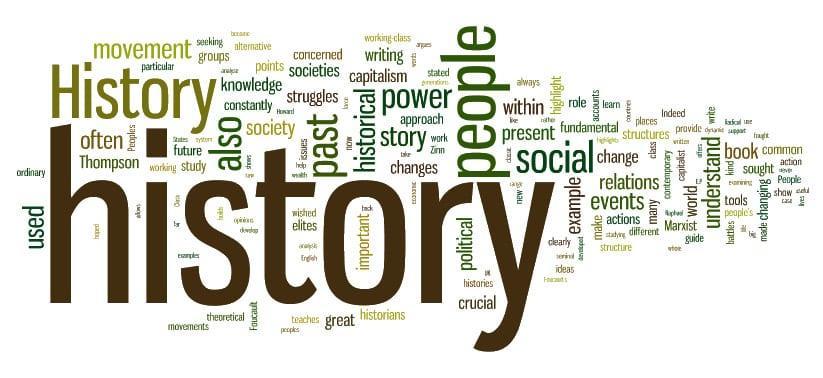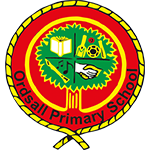History

At Ordsall Primary School History is taught in Key Stages 1 and 2 within a contextualised curriculum following the objectives from the National Curriculum.
At Ordsall Primary School we believe that History, like all domains of knowledge, is not a collection of inert facts but that it also depends on enquiry. It is our belief that History offers an understanding of the present and future and is central to valuing culture and community, local, national and global citizenship and that it shapes consciousness and identity.
In our School our history provision aligns closely to the intent and vision of the school’s curriculum. Our curriculum seeks to empower our children, through shared experiences and collaboration that will support perseverance and problem solving and enhance our children’s moral and social development. In our history provision we aim to provide our children with rich, vibrant and memorable experiences that not only promotes knowledge,understanding and the application of skills but it explicitly promotes an understanding of the methods of historical enquiry and a coherent chronological understanding.
The school’s history curriculum is rooted in the consensus of the school’s leaders about the knowledge and skills that pupils need in order to take advantage of opportunities, responsibilities and experiences in later life. Through our work in history we aim to ensure that our children will be inspired by a curiosity to know about the past so that they ask questions, think critically, weigh evidence and develop perspective and judgment so that they can discern how and why contrasting arguments and interpretations of the past have been constructed. In this way, through our history provision, we believe that this is will develop our children as citizens who are prepared for life in modern Britain.
![]()
Learning, Playing and Growing Together in history at Ordsall Primary School provides the children with exciting learning opportunities that they can commit to long-term memory and apply fluently. It is our intention that the history curriculum will be both stimulating and motivating in order to capture the children’s curiosity and fuel their motivation to learn.
The long-term plan for history ensures that it is taught in a progressive way and knowledge about, and from one period of history is built upon in another. This is done through the study of the settlement of different peoples in history and the reasons and causes of that, their everyday lives, their culture, their beliefs and governance, and their legacy to an area, a country or the world.
Our history curriculum uses, whenever and wherever possible links to the locality of the school, which is not only an important resource, but fosters relations between children and aims to promote interdependence, respect, reciprocity and citizenship. The celebration and understanding of our unique local history and place in the world provides a context for the children’s work. In order to support the children in doing this they engage in first hand visits and experiences including:
- Workshops, such as those on the Romans, Greeks and Egyptians
- Visits, such as those to Lindisfarne, Bamburgh, Creswell Crags, The National Holocaust Centre, the Bassetlaw Museum and many other places
- Taking part in events such as the Mayflower 400 celebrations, Commonwealth Raising the Flag, Remembrance
Our curriculum plans reference the connections that history has across different subjects including Science, Computing, Religious Education, and Geography and how it actively promotes reading for purpose and pleasure through research and listening to information from and quality texts set in the period. Through this approach, we aim to allow our children to be able to transfer key knowledge to long-term memory and apply it fluently in a range of contexts.
In order to plan our history provision each year group uses the long term plan to develop a contextualised plan, which identifies which areas of history are to be taught. The contextualised plans consider the historical skills that will be developed and details the key knowledge that children will be taught to ensure that history is taught in a progressive way. This means that the children build on what has been taught before and move developmentally towards clearly defined end points or “milestones”. The milestones for the end of each term and each year support progression between year groups so that learning is always “built upon”. By delivering our history curriculum in this way we aim to develop the children’s cultural capital and promote British values such as tolerance and respect.
Learning in history is delivered in different ways. It can be a discrete lesson, a block of lessons or a sequence of lessons, which often links different subjects and learning experiences. Within the Early Years Foundation Stage the children develop their knowledge and understanding of history by finding out about events in their own lives and through listening to stories and finding out about places, people and the events in the lives of others.
How do we measure the impact of our work in History?
At Ordsall Primary School we measure the impact of our work in History in a variety of ways. The school uses its knowledge and vocabulary progression map for History to compare the work that the children are doing with key points on the maps. This allows the staff to assess where the children are, and check which elements are evident from the progression on the maps. In History this is done by observing the children completing or starting their work, through pupil discussion (when the children are asked about their work) the work in the children's books and on display and a scrutiny of social media posts about History. This assessment process, used within history, enables the school to evaluate the progress that they are making, inform future work, measure the impact of what we teach and monitor specific groups. The process is tied together through the records of achievement at the end of the year that are shared with parents.
If you would like to see some of the work that we share in history, please see our Twitter feed @Ordsallschool or our website, which are both used to share the work that we do with parents and carers, the local community and the wider community of Bassetlaw, Nottinghamshire, the region and the United Kingdom.
If you would like to know more about the history curriculum at Ordsall Primary School please see the documents below. If you have any questions about the work we do in history please contact the history Subject Leader at the school.
